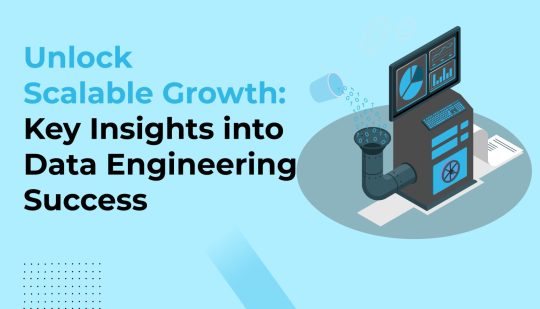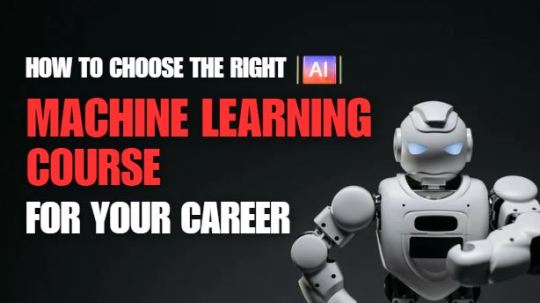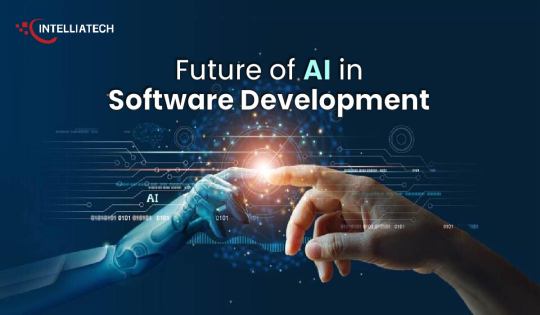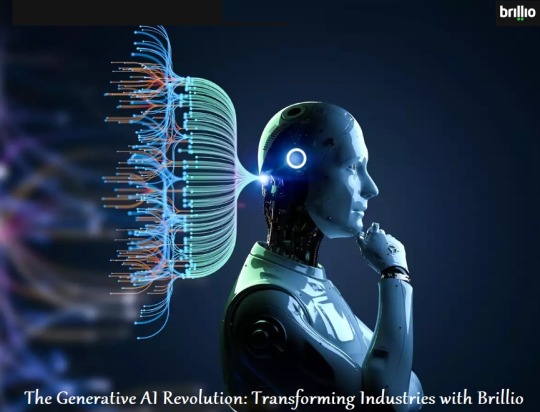#advanced data engineering
Explore tagged Tumblr posts
Text
Your Guide to B.Tech in Computer Science & Engineering Colleges

In today's technology-driven world, pursuing a B.Tech in Computer Science and Engineering (CSE) has become a popular choice among students aspiring for a bright future. The demand for skilled professionals in areas like Artificial Intelligence, Machine Learning, Data Science, and Cloud Computing has made computer science engineering colleges crucial in shaping tomorrow's innovators. Saraswati College of Engineering (SCOE), a leader in engineering education, provides students with a perfect platform to build a successful career in this evolving field.
Whether you're passionate about coding, software development, or the latest advancements in AI, pursuing a B.Tech in Computer Science and Engineering at SCOE can open doors to endless opportunities.
Why Choose B.Tech in Computer Science and Engineering?
Choosing a B.Tech in Computer Science and Engineering isn't just about learning to code; it's about mastering problem-solving, logical thinking, and the ability to work with cutting-edge technologies. The course offers a robust foundation that combines theoretical knowledge with practical skills, enabling students to excel in the tech industry.
At SCOE, the computer science engineering courses are designed to meet industry standards and keep up with the rapidly evolving tech landscape. With its AICTE Approved, NAAC Accredited With Grade-"A+" credentials, the college provides quality education in a nurturing environment. SCOE's curriculum goes beyond textbooks, focusing on hands-on learning through projects, labs, workshops, and internships. This approach ensures that students graduate not only with a degree but with the skills needed to thrive in their careers.
The Role of Computer Science Engineering Colleges in Career Development
The role of computer science engineering colleges like SCOE is not limited to classroom teaching. These institutions play a crucial role in shaping students' futures by providing the necessary infrastructure, faculty expertise, and placement opportunities. SCOE, established in 2004, is recognized as one of the top engineering colleges in Navi Mumbai. It boasts a strong placement record, with companies like Goldman Sachs, Cisco, and Microsoft offering lucrative job opportunities to its graduates.
The computer science engineering courses at SCOE are structured to provide a blend of technical and soft skills. From the basics of computer programming to advanced topics like Artificial Intelligence and Data Science, students at SCOE are trained to be industry-ready. The faculty at SCOE comprises experienced professionals who not only impart theoretical knowledge but also mentor students for real-world challenges.
Highlights of the B.Tech in Computer Science and Engineering Program at SCOE
Comprehensive Curriculum: The B.Tech in Computer Science and Engineering program at SCOE covers all major areas, including programming languages, algorithms, data structures, computer networks, operating systems, AI, and Machine Learning. This ensures that students receive a well-rounded education, preparing them for various roles in the tech industry.
Industry-Relevant Learning: SCOE’s focus is on creating professionals who can immediately contribute to the tech industry. The college regularly collaborates with industry leaders to update its curriculum, ensuring students learn the latest technologies and trends in computer science engineering.
State-of-the-Art Infrastructure: SCOE is equipped with modern laboratories, computer centers, and research facilities, providing students with the tools they need to gain practical experience. The institution’s infrastructure fosters innovation, helping students work on cutting-edge projects and ideas during their B.Tech in Computer Science and Engineering.
Practical Exposure: One of the key benefits of studying at SCOE is the emphasis on practical learning. Students participate in hands-on projects, internships, and industry visits, giving them real-world exposure to how technology is applied in various sectors.
Placement Support: SCOE has a dedicated placement cell that works tirelessly to ensure students secure internships and job offers from top companies. The B.Tech in Computer Science and Engineering program boasts a strong placement record, with top tech companies visiting the campus every year. The highest on-campus placement offer for the academic year 2022-23 was an impressive 22 LPA from Goldman Sachs, reflecting the college’s commitment to student success.
Personal Growth: Beyond academics, SCOE encourages students to participate in extracurricular activities, coding competitions, and tech fests. These activities enhance their learning experience, promote teamwork, and help students build a well-rounded personality that is essential in today’s competitive job market.
What Makes SCOE Stand Out?
With so many computer science engineering colleges to choose from, why should you consider SCOE for your B.Tech in Computer Science and Engineering? Here are a few factors that make SCOE a top choice for students:
Experienced Faculty: SCOE prides itself on having a team of highly qualified and experienced faculty members. The faculty’s approach to teaching is both theoretical and practical, ensuring students are equipped to tackle real-world challenges.
Strong Industry Connections: The college maintains strong relationships with leading tech companies, ensuring that students have access to internship opportunities and campus recruitment drives. This gives SCOE graduates a competitive edge in the job market.
Holistic Development: SCOE believes in the holistic development of students. In addition to academic learning, the college offers opportunities for personal growth through various student clubs, sports activities, and cultural events.
Supportive Learning Environment: SCOE provides a nurturing environment where students can focus on their academic and personal growth. The campus is equipped with modern facilities, including spacious classrooms, labs, a library, and a recreation center.
Career Opportunities After B.Tech in Computer Science and Engineering from SCOE
Graduates with a B.Tech in Computer Science and Engineering from SCOE are well-prepared to take on various roles in the tech industry. Some of the most common career paths for CSE graduates include:
Software Engineer: Developing software applications, web development, and mobile app development are some of the key responsibilities of software engineers. This role requires strong programming skills and a deep understanding of software design.
Data Scientist: With the rise of big data, data scientists are in high demand. CSE graduates with knowledge of data science can work on data analysis, machine learning models, and predictive analytics.
AI Engineer: Artificial Intelligence is revolutionizing various industries, and AI engineers are at the forefront of this change. SCOE’s curriculum includes AI and Machine Learning, preparing students for roles in this cutting-edge field.
System Administrator: Maintaining and managing computer systems and networks is a crucial role in any organization. CSE graduates can work as system administrators, ensuring the smooth functioning of IT infrastructure.
Cybersecurity Specialist: With the growing threat of cyberattacks, cybersecurity specialists are essential in protecting an organization’s digital assets. CSE graduates can pursue careers in cybersecurity, safeguarding sensitive information from hackers.
Conclusion: Why B.Tech in Computer Science and Engineering at SCOE is the Right Choice
Choosing the right college is crucial for a successful career in B.Tech in Computer Science and Engineering. Saraswati College of Engineering (SCOE) stands out as one of the best computer science engineering colleges in Navi Mumbai. With its industry-aligned curriculum, state-of-the-art infrastructure, and excellent placement record, SCOE offers students the perfect environment to build a successful career in computer science.
Whether you're interested in AI, data science, software development, or any other field in computer science, SCOE provides the knowledge, skills, and opportunities you need to succeed. With a strong focus on hands-on learning and personal growth, SCOE ensures that students graduate not only as engineers but as professionals ready to take on the challenges of the tech world.
If you're ready to embark on an exciting journey in the world of technology, consider pursuing your B.Tech in Computer Science and Engineering at SCOE—a college where your future takes shape.
#In today's technology-driven world#pursuing a B.Tech in Computer Science and Engineering (CSE) has become a popular choice among students aspiring for a bright future. The de#Machine Learning#Data Science#and Cloud Computing has made computer science engineering colleges crucial in shaping tomorrow's innovators. Saraswati College of Engineeri#a leader in engineering education#provides students with a perfect platform to build a successful career in this evolving field.#Whether you're passionate about coding#software development#or the latest advancements in AI#pursuing a B.Tech in Computer Science and Engineering at SCOE can open doors to endless opportunities.#Why Choose B.Tech in Computer Science and Engineering?#Choosing a B.Tech in Computer Science and Engineering isn't just about learning to code; it's about mastering problem-solving#logical thinking#and the ability to work with cutting-edge technologies. The course offers a robust foundation that combines theoretical knowledge with prac#enabling students to excel in the tech industry.#At SCOE#the computer science engineering courses are designed to meet industry standards and keep up with the rapidly evolving tech landscape. With#NAAC Accredited With Grade-“A+” credentials#the college provides quality education in a nurturing environment. SCOE's curriculum goes beyond textbooks#focusing on hands-on learning through projects#labs#workshops#and internships. This approach ensures that students graduate not only with a degree but with the skills needed to thrive in their careers.#The Role of Computer Science Engineering Colleges in Career Development#The role of computer science engineering colleges like SCOE is not limited to classroom teaching. These institutions play a crucial role in#faculty expertise#and placement opportunities. SCOE#established in 2004#is recognized as one of the top engineering colleges in Navi Mumbai. It boasts a strong placement record
2 notes
·
View notes
Text
The Impact of AI on Everyday Life: A New Normal
The impact of AI on everyday life has become a focal point for discussions among tech enthusiasts, policymakers, and the general public alike. This transformative force is reshaping the way we live, work, and interact with the world around us, making its influence felt across various domains of our daily existence. Revolutionizing Workplaces One of the most significant arenas where the impact…

View On WordPress
#adaptive learning#AI accessibility#AI adaptation#AI advancements#AI algorithms#AI applications#AI automation#AI benefits#AI capability#AI challenges#AI collaboration#AI convenience#AI data analysis#AI debate#AI decision-making#AI design#AI diagnostics#AI discussion#AI education#AI efficiency#AI engineering#AI enhancement#AI environment#AI ethics#AI experience#AI future#AI governance#AI healthcare#AI impact#AI implications
1 note
·
View note
Text
10 Essential Programming Languages Every Computer Science Student Should Learn

Introduction
In today’s technology-driven world, programming is a crucial skill for any computer science student. Whether you aim to become a software developer, data scientist, or cybersecurity expert, learning the right programming languages can set a strong foundation for your career. This blog explores ten essential programming languages that every computer science student should master to stay ahead in the competitive tech industry.
1. C Language
C is considered the foundation of modern programming. Many advanced languages, including C++ and Java, are influenced by C. Understanding C helps students grasp low-level programming concepts, memory management, and system-level coding. If you’re looking for C classes in Yamuna Vihar or C++ Training in Uttam Nagar, learning C first can be highly beneficial.
2. C++
An extension of C, C++ supports object-oriented programming, making it a great choice for game development, system software, and high-performance applications. Many C++ Coaching Institutes in Yamuna Vihar and C++ Training Institutes in Uttam Nagar provide excellent hands-on training for students who want to build a career in software development.
3. Java
Java is widely used for building enterprise applications, Android development, and backend systems. With its robust security features and cross-platform capabilities, Java remains one of the most in-demand languages. If you are interested in Java Training in Yamuna Vihar or Java Coaching Institutes in Uttam Nagar, learning Java can open doors to numerous career opportunities.
4. Python
Python is popular for its simplicity and versatility. It is extensively used in data science, artificial intelligence, web development, and automation. Python’s easy-to-read syntax makes it an ideal choice for beginners. Many students also pair Python with Data Structure Training in Yamuna Vihar to improve their problem-solving skills.
5. SQL (Structured Query Language)
SQL is essential for managing and querying databases. It is used in almost every application that deals with data. Learning SQL can be beneficial for roles such as database administration and data analysis. If you are looking for SQL classes in Yamuna Vihar or MySQL Training Institutes in Uttam Nagar, mastering SQL can enhance your technical expertise.
6. JavaScript
JavaScript is the backbone of web development. It enables dynamic and interactive user experiences on websites. With the rise of frameworks like React and Node.js, JavaScript remains highly relevant. If you want to explore full-stack development, combining JavaScript with MySQL Coaching in Yamuna Vihar can be a great option.
7. PHP
PHP is a powerful server-side scripting language widely used in web development. It is essential for building dynamic websites and managing content management systems like WordPress. Many Computer Science Training Institutes in Yamuna Vihar offer courses in PHP to help students gain expertise in backend development.
8. Swift
If you are interested in iOS app development, Swift is a must-learn language. It is designed to be fast and safe, making it an excellent choice for mobile application development. Swift is widely adopted by tech giants for developing iOS applications.
9. Kotlin
Kotlin has become the preferred language for Android app development. It offers modern programming features and better performance than Java in many cases. Learning Kotlin, along with Java Course in Uttam Nagar, can give you a competitive edge in the mobile app development industry.
10. R Language
For those interested in data science, statistical computing, and machine learning, R is an essential programming language. It is widely used for data visualization, analytics, and predictive modeling. If you are looking to enhance your career in data science, combining Data Structure Courses in Yamuna Vihar with R programming can be a smart move.
How to Choose the Right Programming Language?
Choosing the right programming language depends on your career goals. Here are some general guidelines:
If you’re into software development, start with C, C++, and Java.
For web development, focus on JavaScript, PHP, and SQL.
If you’re interested in data science, learn Python, R, and SQL.
For app development, go with Swift and Kotlin.
Where to Learn These Programming Languages?
If you’re looking to enhance your programming skills, enrolling in a well-structured training program can be highly beneficial. Many reputed Computer Science Training Institutes in Uttam Nagar and Data Structure Coaching Centres in Yamuna Vihar offer hands-on courses to help students gain practical experience. Whether you’re searching for C++ Classes in Yamuna Vihar, Java Training Institutes in Uttam Nagar, or SQL Coaching in Yamuna Vihar, choosing the right learning center can make a significant difference in your career growth.
Final Thoughts
Mastering these ten essential programming languages can unlock numerous career opportunities in the tech industry. Whether you aspire to be a software engineer, data analyst, or app developer, a solid foundation in these languages will give you a competitive advantage. Start learning today and build a successful future in computer science! Visit us
Suggested Links:
Database Management System
Advanced Data Structures
Learn Core Java
#computer science education#computer science technology#computer science programs#computer science#computer science course#machine learning#intelligence artificielle#coding#engineering#chatbots#mysql database#advanced data structures#yamuna vihar#uttam nagar
0 notes
Text
LLMs Are Not Reasoning—They’re Just Really Good at Planning
New Post has been published on https://thedigitalinsider.com/llms-are-not-reasoning-theyre-just-really-good-at-planning/
LLMs Are Not Reasoning—They’re Just Really Good at Planning


Large language models (LLMs) like OpenAI’s o3, Google’s Gemini 2.0, and DeepSeek’s R1 have shown remarkable progress in tackling complex problems, generating human-like text, and even writing code with precision. These advanced LLMs are often referred as “reasoning models” for their remarkable abilities to analyze and solve complex problems. But do these models actually reason, or are they just exceptionally good at planning? This distinction is subtle yet profound, and it has major implications for how we understand the capabilities and limitations of LLMs.
To understand this distinction, let’s compare two scenarios:
Reasoning: A detective investigating a crime must piece together conflicting evidence, deduce which ones are false, and arrive at a conclusion based on limited evidence. This process involves inference, contradiction resolution, and abstract thinking.
Planning: A chess player calculating the best sequence of moves to checkmate their opponent.
While both processes involve multiple steps, the detective engages in deep reasoning to make inferences, evaluate contradictions, and apply general principles to a specific case. The chess player, on the other hand, is primarily engaging in planning, selecting an optimal sequence of moves to win the game. LLMs, as we will see, function much more like the chess player than the detective.
Understanding the Difference: Reasoning vs. Planning
To realize why LLMs are good at planning rather than reasoning, it is important to first understand the difference between both terms. Reasoning is the process of deriving new conclusions from given premises using logic and inference. It involves identifying and correcting inconsistencies, generating novel insights rather than just providing information, making decisions in ambiguous situations, and engaging in causal understanding and counterfactual thinking like “What if?” scenarios.
Planning, on the other hand, focuses on structuring a sequence of actions to achieve a specific goal. It relies on breaking complex tasks into smaller steps, following known problem-solving strategies, adapting previously learned patterns to similar problems, and executing structured sequences rather than deriving new insights. While both reasoning and planning involve step-by-step processing, reasoning requires deeper abstraction and inference, whereas planning follows established procedures without generating fundamentally new knowledge.
How LLMs Approach “Reasoning”
Modern LLMs, such as OpenAI’s o3 and DeepSeek-R1, are equipped with a technique, known as Chain-of-Thought (CoT) reasoning, to improve their problem-solving abilities. This method encourages models to break problems down into intermediate steps, mimicking the way humans think through a problem logically. To see how it works, consider a simple math problem:
If a store sells apples for $2 each but offers a discount of $1 per apple if you buy more than 5 apples, how much would 7 apples cost?
A typical LLM using CoT prompting might solve it like this:
Determine the regular price: 7 * $2 = $14.
Identify that the discount applies (since 7 > 5).
Compute the discount: 7 * $1 = $7.
Subtract the discount from the total: $14 – $7 = $7.
By explicitly laying out a sequence of steps, the model minimizes the chance of errors that arise from trying to predict an answer in one go. While this step-by-step breakdown makes LLMs look like reasoning, it is essentially a form of structured problem-solving, much like following a step-by-step recipe. On the other hand, a true reasoning process might recognize a general rule: If the discount applies beyond 5 apples, then every apple costs $1. A human can infer such a rule immediately, but an LLM cannot as it simply follows a structured sequence of calculations.
Why Chain-of-thought is Planning, Not Reasoning
While Chain-of-Thought (CoT) has improved LLMs’ performance on logic-oriented tasks like math word problems and coding challenges, it does not involve genuine logical reasoning. This is because, CoT follows procedural knowledge, relying on structured steps rather than generating novel insights. It lacks a true understanding of causality and abstract relationships, meaning the model does not engage in counterfactual thinking or consider hypothetical situations that require intuition beyond seen data. Additionally, CoT cannot fundamentally change its approach beyond the patterns it has been trained on, limiting its ability to reason creatively or adapt in unfamiliar scenarios.
What Would It Take for LLMs to Become True Reasoning Machines?
So, what do LLMs need to truly reason like humans? Here are some key areas where they require improvement and potential approaches to achieve it:
Symbolic Understanding: Humans reason by manipulating abstract symbols and relationships. LLMs, however, lack a genuine symbolic reasoning mechanism. Integrating symbolic AI or hybrid models that combine neural networks with formal logic systems could enhance their ability to engage in true reasoning.
Causal Inference: True reasoning requires understanding cause and effect, not just statistical correlations. A model that reasons must infer underlying principles from data rather than merely predicting the next token. Research into causal AI, which explicitly models cause-and-effect relationships, could help LLMs transition from planning to reasoning.
Self-Reflection and Metacognition: Humans constantly evaluate their own thought processes by asking “Does this conclusion make sense?” LLMs, on the other hand, do not have a mechanism for self-reflection. Building models that can critically evaluate their own outputs would be a step toward true reasoning.
Common Sense and Intuition: Even though LLMs have access to vast amounts of knowledge, they often struggle with basic common-sense reasoning. This happens because they don’t have real-world experiences to shape their intuition, and they can’t easily recognize the absurdities that humans would pick up on right away. They also lack a way to bring real-world dynamics into their decision-making. One way to improve this could be by building a model with a common-sense engine, which might involve integrating real-world sensory input or using knowledge graphs to help the model better understand the world the way humans do.
Counterfactual Thinking: Human reasoning often involves asking, “What if things were different?” LLMs struggle with these kinds of “what if” scenarios because they’re limited by the data they’ve been trained on. For models to think more like humans in these situations, they would need to simulate hypothetical scenarios and understand how changes in variables can impact outcomes. They would also need a way to test different possibilities and come up with new insights, rather than just predicting based on what they’ve already seen. Without these abilities, LLMs can’t truly imagine alternative futures—they can only work with what they’ve learned.
Conclusion
While LLMs may appear to reason, they are actually relying on planning techniques for solving complex problems. Whether solving a math problem or engaging in logical deduction, they are primarily organizing known patterns in a structured manner rather than deeply understanding the principles behind them. This distinction is crucial in AI research because if we mistake sophisticated planning for genuine reasoning, we risk overestimating AI’s true capabilities.
The road to true reasoning AI will require fundamental advancements beyond token prediction and probabilistic planning. It will demand breakthroughs in symbolic logic, causal understanding, and metacognition. Until then, LLMs will remain powerful tools for structured problem-solving, but they will not truly think in the way humans do.
#Abstract Reasoning in LLMs#Advanced LLMs#ai#AI cognitive abilities#AI logical reasoning#AI Metacognition#AI reasoning vs planning#AI research#AI Self-Reflection#apple#approach#Artificial Intelligence#Building#Casual reasoning in LLMs#Causal Inference#Causal reasoning#Chain-of-Thought (CoT)#change#chess#code#coding#Common Sense Reasoning in LLMs#crime#data#deepseek#deepseek-r1#Difference Between#dynamics#engine#form
0 notes
Text

Data Engineering services have become a growing necessity as organizations struggle to manage exponentially increasing volumes of data. Efficient Data Engineering services empower companies to leverage data for strategic decision-making, ensuring they maintain a competitive edge.
By implementing the right frameworks, businesses can continuously innovate and stay ahead of industry challenges.
#data solutions#business insights#advanced analytics#data driven decisions#it services#data engineering#data warehousing
0 notes
Text

Data engineering courses in Pune
Are you searching top Data Engineering courses in Pune to enhance your skills in data management, big data technologies, and analytics. Learn from industry experts and build a strong foundation for a successful career in data engineering.
#Best Data Engineering Courses Pune#JVM institute in Pune#Data Engineering Classes Pune#Advanced Data Engineering Training Pune#Professional Data Engineering Course Pune
0 notes
Text
1 note
·
View note
Text
Humans entering space and realizing we are so small. We are mice compared to these giant races with their advanced machinery and technologies and experiences beyond us- except that we're humans. And our engineers dive into the new tech and once we learn the principles we also soon realize how Inefficient everything is. Their "microchips" are the size of cars, their storage drives are basically buildings, and they somehow store less data than ours. So, human companies take advantage, and tech starts rolling out. Massive and there's a lot of wasted space so that it can be managed with larger hands/pincers/claws/tentacles, but also so much more efficient than anything the galaxy has seen before.
Human technicians start hopping ships and upkeeping the general maintenance, the stuff that most aliens put off or don't notice because they never access the crevices of their ships. As human companies become more popular and lead the tech world in everything from warp cores to game stations ("it's so compact! How are the graphics so good?" Says a 60' tall grimbleback, holding a new VR headset that has all of its components included because it's so BIG by our tech standards), soon many things have accessibility ports for humans to be able to use as well. This means that these shiprats hoping ship to ship cause such a huge improvement in everything running smoothly, and there's a huge downtick in pests on ships because those "pests" are not only big enough and aggressive enough to bite a pitbull or a person in half, they're invasive to so many planets and humans hate nothing more than dog killing planet overrunning monsters.
All the while, from the Aliens perspective, humans are an elusive race that don't fraternize much with them. You almost never see a human as most places aren't exactly safe for the little things to run around in. They do export so much stuff though, and the custodial staff at the Central Galactic Outpost insists that there's more humans around than any other race if you just know where to look.
And sure it's somewhat known that some of the little daredevils hop ships and help out in exchange for room and board, usually without permission, but that can't be that common, can it?
Maybe your ship is running better this cycle ever since you stopped at the last station, that just means that tuneup was better than you thought. And maybe for some reason that program you were working on last night is finished when you wake up, but you're so tired maybe you finished it before you passed out. Somehow that faulty light in the galley has fixed itself as well, which is odd, but maybe the Engineer finally got to it. You'd know if there was someone else on your ship.
Right?
... You leave a little bowl of berries out as a thank you, just in case. You're not sure what humans like but you've heard they have a sweet tooth.
15K notes
·
View notes
Text
How to Choose the Right Machine Learning Course for Your Career

As the demand for machine learning professionals continues to surge, choosing the right machine learning course has become crucial for anyone looking to build a successful career in this field. With countless options available, from free online courses to intensive boot camps and advanced degrees, making the right choice can be overwhelming.
#machine learning course#data scientist#AI engineer#machine learning researcher#eginner machine learning course#advanced machine learning course#Python programming#data analysis#machine learning curriculum#supervised learning#unsupervised learning#deep learning#natural language processing#reinforcement learning#online machine learning course#in-person machine learning course#flexible learning#machine learning certification#Coursera machine learning#edX machine learning#Udacity machine learning#machine learning instructor#course reviews#student testimonials#career support#job placement#networking opportunities#alumni network#machine learning bootcamp#degree program
0 notes
Text
Exploring the Benefits of AI SEO Tools for Your Website
AI SEO tools are transforming the way we approach search engine optimization. In today’s fast-paced digital world, leveraging AI SEO tools can give your website a significant edge over the competition. These advanced tools use artificial intelligence to enhance various aspects of SEO, making it easier for your content to rank higher on search engine results pages (SERPs). Let’s dive into how AI…
#advanced SEO tools#AI and data analysis#AI content optimization#AI ethical concerns#AI for keyword research#AI in digital marketing#AI in everyday life#AI in search engine optimization#AI limitations#AI natural language processing#AI SEO benefits#AI SEO optimization#AI SEO strategies#AI SEO tools#AI SEO trends 2024#AI-based SEO solutions#AI-driven SEO analysis#AI-powered SEO#artificial intelligence SEO#autonomous AI systems#best AI SEO software#creative AI applications#future of AI#machine learning SEO tools#SEO automation with AI#SEO tools with AI#top AI SEO platforms#what AI can do
0 notes
Text
Future Of AI In Software Development

The usage of AI in Software Development has seen a boom in recent years and it will further continue to redefine the IT industry. In this blog post, we’ll be sharing the existing scenario of AI, its impacts and benefits for software engineers, future trends and challenge areas to help you give a bigger picture of the performance of artificial intelligence (AI). This trend has grown to the extent that it has become an important part of the software development process. With the rapid evolvements happening in the software industry, AI is surely going to dominate.
Read More
#Accountability#Accuracy Accuracy#Advanced Data Analysis#artificial intelligence#automated testing#Automation#bug detection#code generation#code reviews#continuous integration#continuous deployment#cost savings#debugging#efficiency#Enhanced personalization#Ethical considerations#future trends#gartner report#image generation#improved productivity#job displacement#machine learning#natural language processing#privacy privacy#safety#security concerns#software development#software engineers#time savings#transparency
0 notes
Text
The Generative AI Revolution: Transforming Industries with Brillio
The realm of artificial intelligence is experiencing a paradigm shift with the emergence of generative AI. Unlike traditional AI models focused on analyzing existing data, generative AI takes a leap forward by creating entirely new content. The generative ai technology unlocks a future brimming with possibilities across diverse industries. Let's read about the transformative power of generative AI in various sectors:
1. Healthcare Industry:
AI for Network Optimization: Generative AI can optimize healthcare networks by predicting patient flow, resource allocation, etc. This translates to streamlined operations, improved efficiency, and potentially reduced wait times.
Generative AI for Life Sciences & Pharma: Imagine accelerating drug discovery by generating new molecule structures with desired properties. Generative AI can analyze vast datasets to identify potential drug candidates, saving valuable time and resources in the pharmaceutical research and development process.
Patient Experience Redefined: Generative AI can personalize patient communication and education. Imagine chatbots that provide tailored guidance based on a patient's medical history or generate realistic simulations for medical training.
Future of AI in Healthcare: Generative AI has the potential to revolutionize disease diagnosis and treatment plans by creating synthetic patient data for anonymized medical research and personalized drug development based on individual genetic profiles.
2. Retail Industry:
Advanced Analytics with Generative AI: Retailers can leverage generative AI to analyze customer behavior and predict future trends. This allows for targeted marketing campaigns, optimized product placement based on customer preferences, and even the generation of personalized product recommendations.
AI Retail Merchandising: Imagine creating a virtual storefront that dynamically adjusts based on customer demographics and real-time buying patterns. Generative AI can optimize product assortments, recommend complementary items, and predict optimal pricing strategies.
Demystifying Customer Experience: Generative AI can analyze customer feedback and social media data to identify emerging trends and potential areas of improvement in the customer journey. This empowers retailers to take proactive steps to enhance customer satisfaction and loyalty.

3. Finance Industry:
Generative AI in Banking: Generative AI can streamline loan application processes by automatically generating personalized loan offers and risk assessments. This reduces processing time and improves customer service efficiency.
4. Technology Industry:
Generative AI for Software Testing: Imagine automating the creation of large-scale test datasets for various software functionalities. Generative AI can expedite the testing process, identify potential vulnerabilities more effectively, and contribute to faster software releases.
Generative AI for Hi-Tech: This technology can accelerate innovation in various high-tech fields by creating novel designs for microchips, materials, or even generating code snippets to enhance existing software functionalities.
Generative AI for Telecom: Generative AI can optimize network performance by predicting potential obstruction and generating data patterns to simulate network traffic scenarios. This allows telecom companies to proactively maintain and improve network efficiency.
5. Generative AI Beyond Industries:
GenAI Powered Search Engine: Imagine a search engine that understands context and intent, generating relevant and personalized results tailored to your specific needs. This eliminates the need to sift through mountains of irrelevant information, enhancing the overall search experience.
Product Engineering with Generative AI: Design teams can leverage generative AI to create new product prototypes, explore innovative design possibilities, and accelerate the product development cycle.
Machine Learning with Generative AI: Generative AI can be used to create synthetic training data for machine learning models, leading to improved accuracy and enhanced efficiency.
Global Data Studio with Generative AI: Imagine generating realistic and anonymized datasets for data analysis purposes. This empowers researchers, businesses, and organizations to unlock insights from data while preserving privacy.
6. Learning & Development with Generative AI:
L&D Shares with Generative AI: This technology can create realistic simulations and personalized training modules tailored to individual learning styles and skill gaps. Generative AI can personalize the learning experience, fostering deeper engagement and knowledge retention.
HFS Generative AI: Generative AI can be used to personalize learning experiences for employees in the human resources and financial services sector. This technology can create tailored training programs for onboarding, compliance training, and skill development.
7. Generative AI for AIOps:
AIOps (Artificial Intelligence for IT Operations) utilizes AI to automate and optimize IT infrastructure management. Generative AI can further enhance this process by predicting potential IT issues before they occur, generating synthetic data for simulating scenarios, and optimizing remediation strategies.
Conclusion:
The potential of generative AI is vast, with its applications continuously expanding across industries. As research and development progress, we can expect even more groundbreaking advancements that will reshape the way we live, work, and interact with technology.
Reference- https://articlescad.com/the-generative-ai-revolution-transforming-industries-with-brillio-231268.html
#google generative ai services#ai for network optimization#generative ai for life sciences#generative ai in pharma#generative ai in banking#generative ai in software testing#ai technology in healthcare#future of ai in healthcare#advanced analytics in retail#ai retail merchandising#generative ai for telecom#generative ai for hi-tech#generative ai for retail#learn demystifying customer experience#generative ai for healthcare#product engineering services with Genai#accelerate application modernization#patient experience with generative ai#genai powered search engine#machine learning solution with ai#global data studio with gen ai#l&d shares with gen ai technology#hfs generative ai#generative ai for aiops
0 notes
Text
Getting Into Kart Racing
Kart racing is a highly thrilling form of motorsport that serves as the gateway for many aspiring racers into the world of competitive racing. At its core, kart racing involves driving small, open-wheel vehicles known as karts around a track. These machines may look simple at first glance, but they offer an intense racing experience that requires skill, precision, and a deep understanding of…

View On WordPress
#affordable motorsport#beginner racing#beginner to advanced kart racing#career advancement in karting#competitive karting#competitive racing#competitive series participation#data analysis#driving skill improvement#entry-level karts#equipment strategy#equipment upgrades#first kart race#Formula 1 pathway#four-stroke engines#high-performance karts#kart classifications#kart equipment guide#kart maintenance#kart performance upgrades#kart racing accessibility#kart racing basics#kart racing clubs#kart racing coaching#kart selection advice#kart track research#karting community networking#local track discovery#local track rentals#manual transmission
0 notes
Text
Faces of MIT: Melissa Smith PhD ’12
New Post has been published on https://thedigitalinsider.com/faces-of-mit-melissa-smith-phd-12/
Faces of MIT: Melissa Smith PhD ’12


Melissa Smith PhD ’12 is an associate leader in the Advanced Materials and Microsystems Group at MIT Lincoln Laboratory. Her team, which is embedded within the laboratory’s Advanced Technology Division, drives innovation in fields including computation, aerospace, optical systems, and bioengineering by applying micro- and nanofabrication techniques. Smith, an inventor of 11 patents, strongly believes in the power of collaboration when it comes to her own work, the work of her Lincoln Laboratory colleagues, and the innovative research done by MIT professors and students.
Lincoln Laboratory researches and develops advanced technologies in support of national security. Research done at the laboratory is applied, meaning staff members are given a specific problem to solve by a deadline. Divisions within the laboratory are made up of technical experts, ranging from biologists to cybersecurity researchers, working on different projects simultaneously. Smith appreciates the broad application space of her group’s work, which feeds into programs across the laboratory. “We are like a kitchen drawer full of indispensable gadgets,” she says, some of which are used to develop picosatellites, smart textiles, or microrobots. Their position as a catch-all team makes their work fun, somewhat open-ended, and always interesting.
In 2012, Smith received her PhD from the MIT Department of Materials Science & Engineering (DMSE). After graduation, she remained at the Institute for nine months as a postdoc before beginning her career as an engineer at IBM. While at IBM, Smith maintained a research affiliation with MIT to continue to work on patents and write papers. In 2015, she formally returned to MIT as a technical staff member at Lincoln Laboratory. In 2020, she was promoted to the position of assistant group leader and was awarded the laboratory’s Best Invention Award for “Electrospray devices and methods for fabricating electrospray devices” (U.S. Patent 11,708,182 B2). In 2024, she was promoted to associate group leader.
Management is an important aspect of Smith’s role, and she credits the laboratory for cultivating people with both academic and technical backgrounds to learn how to effectively run programs and teams. Her demonstrated efficacy in the academic and corporate spaces — both of which contain deadlines and collaborative work — allows her to inspire her team to be innovative and efficient. She keeps her group running smoothly by removing potential roadblocks so they can adequately attend to their projects. Smith focuses on specific tasks that aid in her group’s success, including writing grant proposals, a skill she learned while working at the laboratory, which allows her staff to prioritize their technical work. That, she says, is the value of working as a team.
A true champion of teamwork, Smith advises new staff members to maintain an open mind because they can learn something from everyone they encounter, especially when first starting at the Institute. She notes that every colleague has something unique to offer, and taking time to understand the wealth of experience and knowledge around you will only help you succeed as a staff member at MIT. “Be who you are, do what you do, and run with it,” she says.
Soundbytes
Q: What project at MIT are you the proudest of?
Smith: We are building a wafer-scale satellite, which is a little bit out-there as an idea. It was thought up in the 1960s, but the technology wasn’t to the point where it could be realized. Technology today is more than capable of making this small space microsystem. I was tasked with taking the idea further. Some people say that it is impossible, and for a lot of good reasons! Slowly addressing the technical issues to the point where people now say, “Oh, you could probably do this,” is exciting.
I never want to be someone who thinks something is impossible. I’ll say, “I can’t do it, but maybe somebody else can,” and I will also add, “Here is what I tried, here is all the data, and here is how I came to the point where I got stuck.” I like taking something that was initially met with disbelief and rendering it. Lincoln Laboratory is active with professors and students. I am collaborating with students from the Department of Aeronautics and Astronautics on the project, and we now have a patent on the technology that came from it. I am happy to have students assist, write papers, and occasionally get their names on patents. It is seeding additional innovation. We don’t have the system quite yet, but I’ve converted a few skeptics!
Q: What are your favorite campus memories from when you were a student?
Smith: When I was a graduate student, I would go with friends to the Muddy Charles Pub in Walker Memorial. One of the things I really enjoy about Walker Memorial is the prime view over the Charles River, and I remember staring out of the windows at the top of Walker Memorial after exams. Also, during Independent Activities Period I learned how to snowboard. I’m from Illinois where there are no mountains. When I came to the East Coast and saw that there were a lot of mountains with people strapping metal to their feet in the snow, I thought, “OK, let’s try it.” I love snowboarding to this day. MIT has this kind of unfettered freedom in a way that, even beyond the technical stuff, people can try things from a personal standpoint they maybe wouldn’t have tried somewhere else.
Q: What do you like the most about the culture at MIT?
Smith: We help people grow professionally. The staff here are above average in terms of capability in what they do. When I interviewed for my job, I asked where people work when they leave MIT. People move on to other labs like the Jet Propulsion Laboratory or companies like Raytheon, they become professors, or they start their own companies. I make sure that people are learning what they want to do with their careers while they work at the laboratory. That is the cultural overlay that exists on campus. When I was a student, I interned at John Deere, 3M, Xerox, and IBM and saw how they are innovative in their own ways that define their corporate cultures. At MIT, you are supported to explore and play. At Lincoln Laboratory people are not pigeonholed into a particular role. If you have an idea, you are encouraged to explore it, as long as it aligns with the mission. There is a specific freedom you can experience at MIT that is above and beyond a typical academic environment.
#2024#ADD#advanced materials#Aeronautical and astronautical engineering#aeronautics#aerospace#Alumni/ae#amp#bioengineering#Building#career#Careers#Collaboration#collaborative#Community#Companies#computation#cybersecurity#data#devices#DMSE#electrospray#Engineer#engineering#Environment#Full#gadgets#how#how to#IBM
0 notes
Text
Complete Excel, AI and Data Science mega bundle.
Unlock Your Full Potential with Our 100-Hour Masterclass: The Ultimate Guide to Excel, Python, and AI.
Why Choose This Course? In today’s competitive job market, mastering a range of technical skills is more important than ever. Our 100-hour comprehensive course is designed to equip you with in-demand capabilities in Excel, Python, and Artificial Intelligence (AI), providing you with the toolkit you need to excel in the digital age.
To read more click here <<
Become an Excel Pro Delve deep into the intricacies of Excel functions, formulae, and data visualization techniques. Whether you’re dealing with basic tasks or complex financial models, this course will make you an Excel wizard capable of tackling any challenge.
Automate Your Workflow with Python Scripting in Python doesn’t just mean writing code; it means reclaiming your time. Automate everyday tasks, interact with software applications, and boost your productivity exponentially.
If you want to get full course click here <<

Turn Ideas into Apps Discover the potential of Amazon Honeycode to create custom apps tailored to your needs. Whether it’s for data management, content tracking, or inventory — transform your creative concepts into practical solutions.
Be Your Own Financial Analyst Unlock the financial functionalities of Excel to manage and analyze business data. Create Profit and Loss statements, balance sheets, and conduct forecasting with ease, equipping you to make data-driven decisions.
Embark on an AI Journey Step into the future with AI and machine learning. Learn to build advanced models, understand neural networks, and employ TensorFlow. Turn big data into actionable insights and predictive models.
Master Stock Prediction Gain an edge in the market by leveraging machine learning for stock prediction. Learn to spot trends, uncover hidden patterns, and make smarter investment decisions.
Who Is This Course For? Whether you’re a complete beginner or a seasoned professional looking to upskill, this course offers a broad and deep understanding of Excel, Python, and AI, preparing you for an ever-changing work environment.
Invest in Your Future This isn’t just a course; it’s a game-changer for your career. Enroll now and set yourself on a path to technological mastery and unparalleled career growth.
Don’t Wait, Transform Your Career Today! Click here to get full course <<

#data science#complete excel course#excel#data science and machine learning#microsoft excel#difference between ai and data science#learn excel#complete microsoft excel tutorial#difference between data science and data engineering#365 data science#aegis school of data science#advanced excel#excel tips and tricks#advanced excel full course#computer science#ms in data science#pgp in data science#python data science#python data science tutorial#Tumblr
1 note
·
View note
Text
Data engineer training and placement in Pune - JVM Institute
Kickstart your career with JVM Institute's top-notch Data Engineer Training in Pune. Expert-led courses, hands-on projects, and guaranteed placement support to transform your future!
#Best Data engineer training and placement in Pune#JVM institute in Pune#Data Engineering Classes Pune#Advanced Data Engineering Training Pune#Data engineer training and placement in Pune#Big Data courses in Pune#PySpark Courses in Pune
0 notes